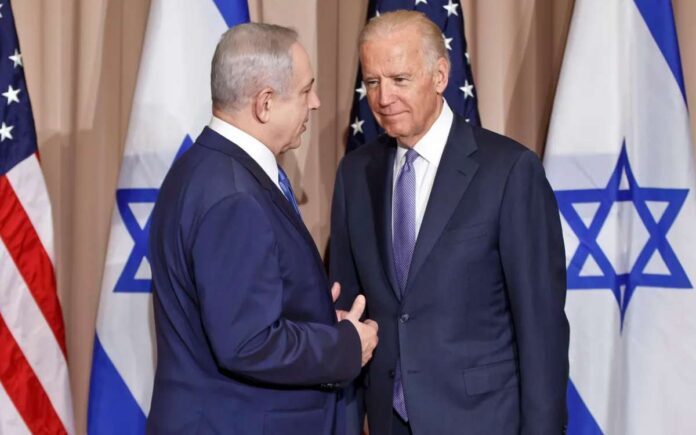Washington: Speculation surrounding the International Criminal Court’s (ICC) possible issuance of arrest warrants over the conduct of the Gaza war has prompted the Biden administration to assert its opposition to the prosecution of Israeli government members.
At Monday’s media briefing, White House press secretary Karine Jean-Pierre emphasized the administration’s stance, stating, “We do not support it,” in reference to the ICC’s investigation, which encompasses actions by both Hamas and Israel. Jean-Pierre further asserted, “We don’t believe they have the jurisdiction.”
As neither the United States nor Israel are ICC members among the 124 nations involved, the likelihood of Israel extraditing any government member for prosecution in The Hague is virtually nonexistent. However, potential arrest warrants, possibly including one for Prime Minister Benjamin Netanyahu, would undoubtedly strengthen the arguments of Israel’s critics.
Central to these criticisms is the assertion that Israel’s response following the Oct. 7 Hamas assault, resulting in nearly 1,200 Israeli deaths, has been excessively brutal and indiscriminate. Allegations include violations of international law through certain military strikes and restrictions on humanitarian aid.
Also Read | Israeli Efforts to Thwart International Court Arrest Warrant for PM Netanyahu
Estimates suggest Israel’s Gaza offensive resulted in approximately 34,000 fatalities.
The prospect of ICC arrest warrants adds another layer to the already heated American debate surrounding the Gaza conflict. This debate encompasses campus protests against Israeli actions, increasing dissatisfaction—particularly among Democratic constituents—with Netanyahu’s leadership, and questions regarding President Biden’s use of American influence to temper Israel’s actions.
Conversely, pro-Israel Democrats, as well as many Republicans and independents, argue that the primary concern is Biden veering too far left under pressure from pro-Palestinian activists, potentially undermining his commitment to Israel’s security.
Moreover, numerous Jewish organizations have expressed concerns about rising antisemitism, while progressive voices argue that accusations of anti-Jewish prejudice are utilized to delegitimize criticism of Netanyahu’s policies.
Also Read | Columbia University Suspends Pro-Palestinian Protesters as Talks Stall
These fault lines are evident in discussions about potential ICC action.
Usamah Andrabi, spokesperson for Justice Democrats, a progressive group, defended the ICC’s mandate to hold individuals accountable for international and war crimes, including senior Israeli officials’ actions.
Democratic strategist Joel Rubin, a former deputy assistant secretary of State, dismissed the possibility of ICC warrants as “ridiculous,” citing entrenched biases against Israel within international judicial bodies.
The debate extends to Capitol Hill, where Speaker Mike Johnson (R-La.) condemned the idea of ICC arrest warrants as “disgraceful” and “an abomination.” Senator John Fetterman (D-Pa.), a staunch supporter of Israel, urged Biden to intervene against the ICC.
While the form of such intervention remains unclear, backroom diplomacy appears the most plausible approach.
Also Read | UN: North Korean Hwasong-11 Missile Used in Ukraine, Violating Sanctions
Some American officials believe that pursuing arrest warrants could hinder efforts to broker a ceasefire or hostage release in the conflict. A Bloomberg report suggested that the U.S. and its allies fear such warrants could jeopardize potential agreements, prompting quiet diplomatic efforts to convey this concern to the ICC.
Disagreement persists over whether these concerns are legitimate or diversionary tactics.
Usamah Andrabi dismissed the notion that ICC warrants would influence Israel’s commitment to a ceasefire, citing the country’s previous reluctance to agree to one.
Joel Rubin argued that designating Israeli officials as war criminals could discourage them from seeking conflict resolution.
As debates continue, the conflict’s resolution remains elusive, with differing perspectives shaping international responses.



